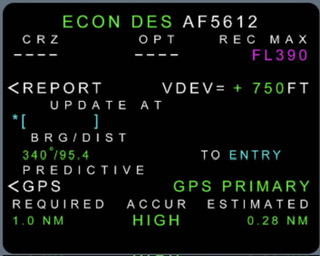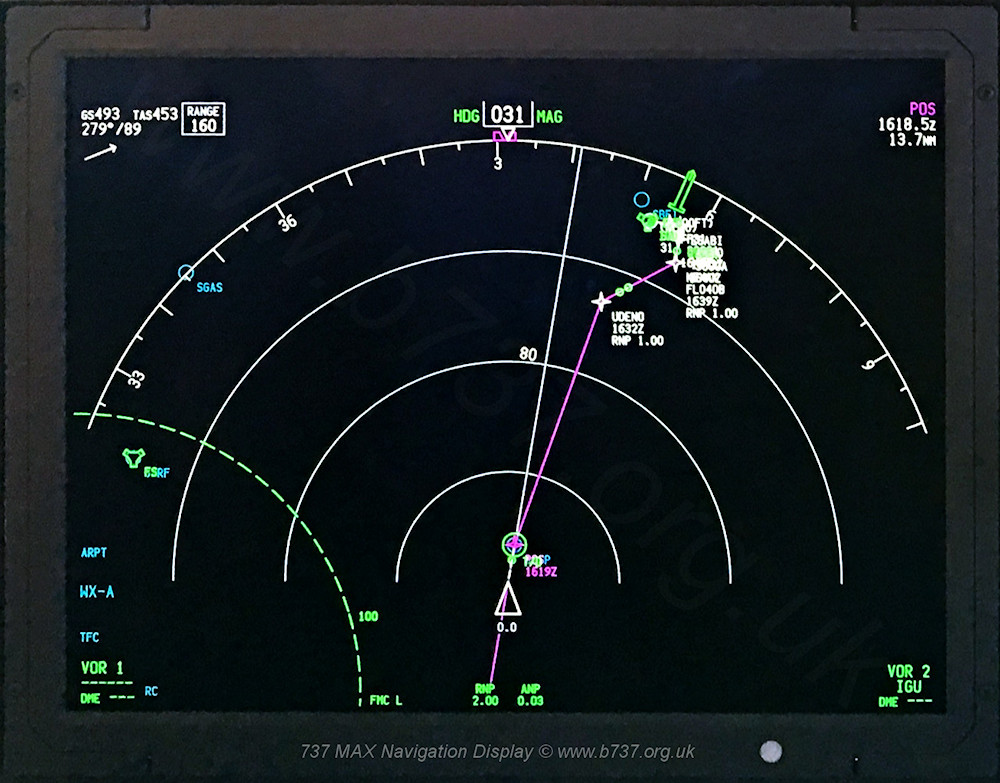I'm trying to understand what is exactly onboard performance monitoring and alerting system related to RNP. Does it display some extent of deviation or just beeps as alarm? And if that system exists only in RNP, so how can pilot be sure that he performs RNAV1 (for example) correctly?
-
$\begingroup$ I'd have to dig, and it may be aircraft specific, but typically there is numerical value displayed in a corner of the PFD when you are in that nav mode indicating "confidence factor" or some such label that must meet a certain criteria for the planned approach. I will delete this once a better answer is given, just a quick response that might satisfy some curiosity... $\endgroup$– Michael HallCommented May 24, 2023 at 17:04
2 Answers
In Airbuses logic is exactly like described by @RalphJ on 737.
REQUIRED navigation performance (RNP) is determined by flight management system based on phase of flight or type of approach being flown. Pilot can override this value if required.
Actual navigation performance is calculated based on available sensors and displayed as ESTIMATED position uncertainty (EPU).
Both values are displayed on the bottom row of MCDU PROG page. EPU is required to be lower than RNP, which is indicated by “HIGH” navigation accuracy between the values. If EPU becomes higher than RNP an amber “NAV ACCUR DOWNGRAD” is displayed on both navigation display and MCDU scratch pad, as well as “LOW” accuracy on MCDU PROG page.
GPS PRIMARY indicates valid GPS position. If that is lost, a “GPS PRIMARY LOST” is indicated in similar fashion. This may or may not be relevant as some procedures and airspaces require GPS while others don’t.
Also, if loss of navigation accuracy is due to loss of equipment the failure also generates ECAM messages.
-
$\begingroup$ Thank you! But what's about general RANV? How to determine correct performance on it? $\endgroup$ Commented May 25, 2023 at 12:31
-
$\begingroup$ RNAV is an old term that dates years before any of the modern systems were in use. Basically “as it is”, it means only that you are able to fly between two arbitrary points. But these days terminology is very confusing where terms RNAV and RNP are used interchangeably and airspace mentioned as RNAV may actually require monitoring capabilities provided by RNP. And even then, different classes (RNAV/RNP1, RNAV5, RNAV10, RNAV4 etc) are not sub/supersets of each other… See aviation.stackexchange.com/questions/51112/… $\endgroup$ Commented May 26, 2023 at 6:32
-
$\begingroup$ In Airbus context there is a specific procedure that if your navigation accuracy is LOW (ie EPU greater than RNP) and airspace and/or procedure does not require alerting you can continue to use RNAV functions of the flight management system after cross checking FMS position with VOR/DME. If the difference is “acceptable”, you are good to go. But of course, you can’t fly any RNP procedures with it. $\endgroup$ Commented May 26, 2023 at 6:41
On the 737 NG and Max the ANP (actual navigation performance) and the RNP (required navigation performance) are shown at the bottom center of the Navigation Display:
Source: http://www.b737.org.uk/images/fltinsts_max-nd-map-full.jpg
If the ANP becomes larger than the RNP, the message "UNABLE RNP" appears in the CDU scratchpad as well, and the RNP/ANP values turn amber on the screen.
It's possible to see the values in FMC pages as well, but on-screen on the ND is the easiest.
There is always some value for RNP, which the FMC computes based on the phase of flight (departure, enroute, arrival, approach) and if the pilot has entered one (which then takes priority). The message will appear if the ANP exceeds RNP. That's most likely on approach when RNP values are small, but in a situation when GPS isn't available, the ANP will grow over time and you could be in an "unable RNP" situation in an enroute or arrival scenario as well.


